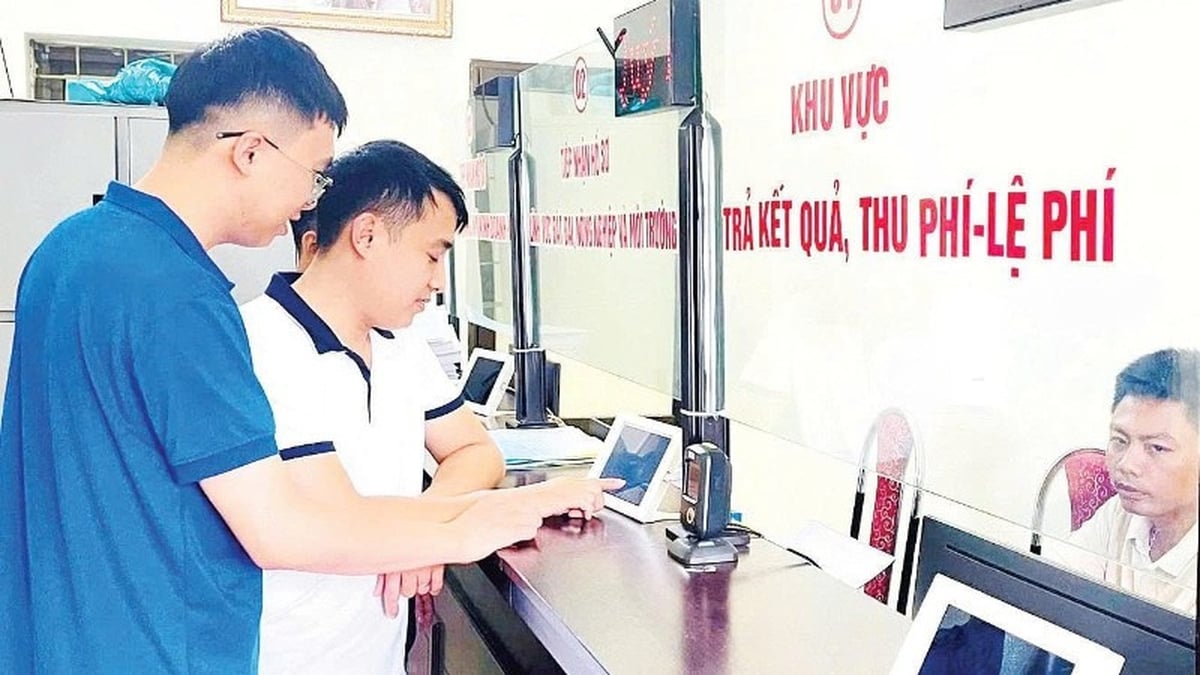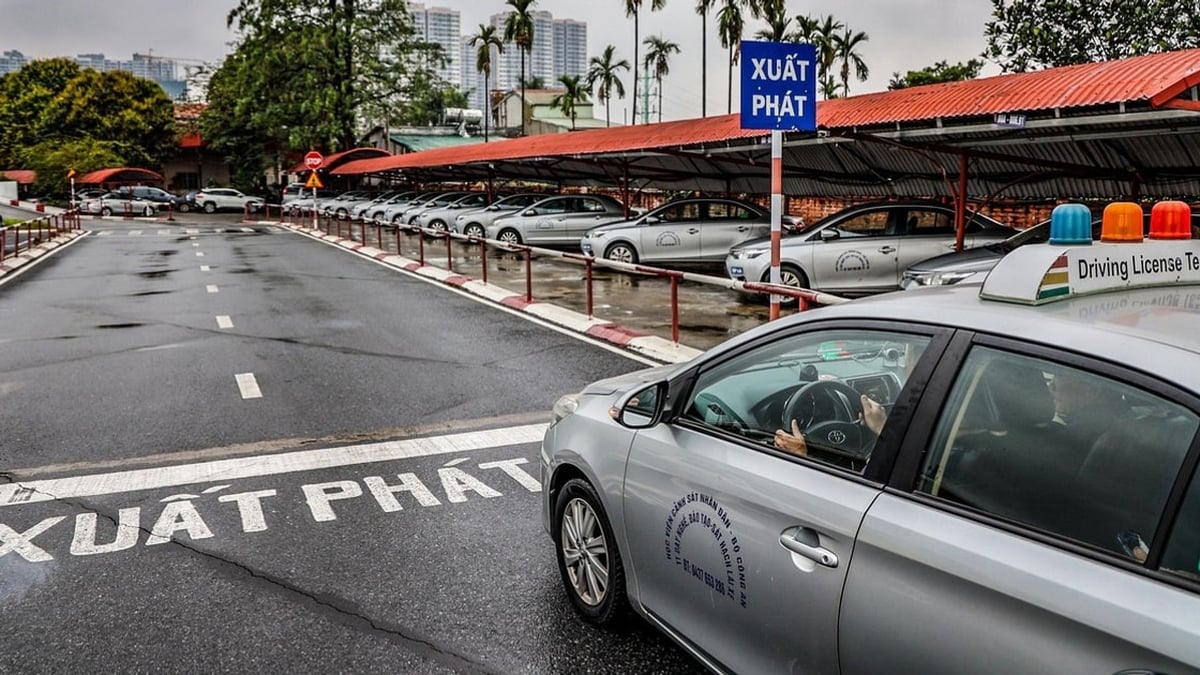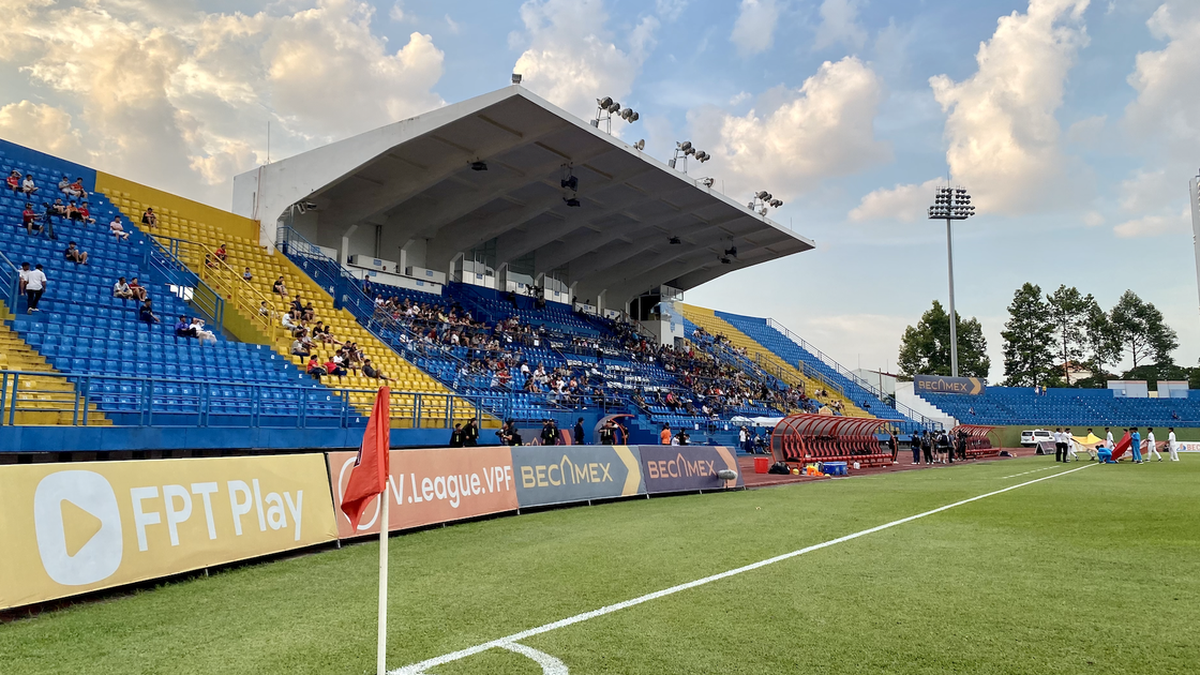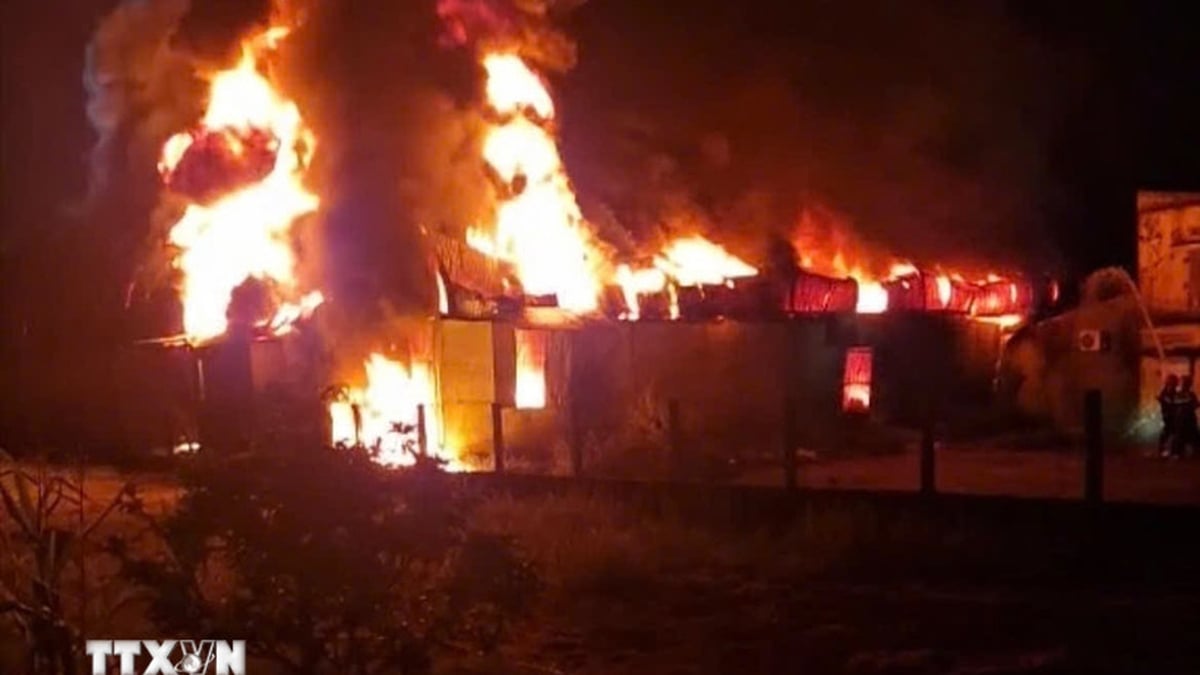 |
| Memorial house of "Old Man Ben Ngu". Photo: Ngoc Hoa |
Born in Dan Nhiem village, Nam Hoa commune, Nam Dan district, Nghe An province, but Hue city is where Phan took his first steps on the path of campaigning to find a way to save the country, where the patriot spent the last 15 years of his life when he was under house arrest by the French colonialists. There is a spacious memorial area at number 119 on the street named after him. The memorial site of Phan Boi Chau in Hue is ranked at the national level as the place where he lived and worked during his years in Hue and is also his final resting place. The relic site has the following buildings: Phan's house during his lifetime, Phan's tomb, Phan's church, ancestral temple, Phan's statue and Phan Boi Chau cemetery... I have been here many times and each time I come, I learn more things, but the only feeling is admiration. In the house where “Old Man Ben Ngu” lived during his lifetime, which was restored in 1997, with a thatched roof nestled among rows of trees and tall areca trees imbued with the spirit of the country and the nation, are simple objects, recreating the frugal life of a great personality for the country and the mountains and rivers.
It is known that during the years of house arrest in the Imperial City of Hue, with love and respect, the people of the whole country and Thua Thien Hue voluntarily donated to buy this garden on Ben Ngu slope to make a house for him. The house was built in 1926, designed by Mr. Phan himself, and Mr. Vo Liem Son - a teacher at Quoc Hoc School - presided over the construction. The house has three rooms, symbolizing the three regions (North, Central, South), the thatched roof, the earthen walls are relatively high and airy. The middle of the square house is used as a place for speeches. Around it are separate rooms.
We must have known that the patriot Phan Boi Chau, with his deep patriotism, soon went abroad to find a way to liberate his homeland from the domination of feudal colonialism. After many years of wandering abroad, in 1925 he was arrested in Shanghai (China) and secretly brought back to Hanoi by the French colonialists. In the face of the struggle movement of the people of the whole country demanding amnesty for him, the French colonialists had to bring him back to Hue and put him under house arrest from 1925 to 1940. In the land that was the center of feudal colonialism at that time, despite being under strict control, the colonialists and feudalists still could not subdue the patriotism and revolutionary will of Phan Boi Chau. And his house became a gathering place for young people, elite intellectuals, with progressive thoughts, and revolutionary enlightenment.
Not only that, Phan Boi Chau also built a cemetery named after himself on Quang Te hill, Thuy Xuan commune, so that revolutionary patriots would have a place to rest after their journeys of fighting for the country. Initially, Phan intended to build an orphanage here, but because the French colonialists forbade it, he built the cemetery with the meaning that if he could not help the living, he would help the dead. According to Phan's will, only his comrades, collaborators or those who sacrificed for the revolution would be buried here.
Patriot Phan Boi Chau sacrificed himself for the country, so wherever he was, he was respected and loved by the people. In 1925, when he was arrested by the French colonialists and they plotted to harm him, the people of the whole country united in protesting and putting pressure on them to release him. In 1974, students and intellectuals from all over the country once again raised money with the desire to cast a statue of Phan. Students of Quoc Hoc Hue School held a lottery to raise money to support the casting of the statue of Sao Nam. That was also the way people showed respect for their revolutionary predecessor. The completed statue was placed in the Phan Boi Chau Memorial Area in 1987, then moved to the flower garden on Le Loi Street, on the bank of the Perfume River, near Truong Tien Bridge in the center of Hue City for many people to worship. Standing next to the majestic statue of Phan Boi Chau, I remember his poems from his lifetime: "Because the monolithic stone is heavy, its shape soars to the sky/A great man does not need to lose his will, a supreme being is not shaken!/ A pillar supporting the sky, setting an example of eternal morality/ Its sound echoes on the ground, teaching literature in two regions!"
From the original house of Phan, now the Phan Boi Chau Memorial Site, where the precious legacy of Phan, who inspired generations of Vietnamese people, is preserved. During their visit to Vietnam in March 2017, Emperor Akihito and Empress Michiko visited this place. This is a special historical event in the diplomatic relations between Japan and Vietnam. The diplomatic relationship developed from the Dong Du movement initiated by Phan Boi Chau from 1905 to 1909. In 2010, on the occasion of the 70th anniversary of Phan's death and the 100th anniversary of Dr. Asaba Sakitaro's death, kind-hearted Japanese people donated a commemorative stele of the Vietnam-Japan exchange relationship from the Dong Du movement placed in the garden in front of Phan Boi Chau's grave at the memorial site. Dr. Asaba Sakitaro was the one who actively supported Phan during his journey to find a way to save the country. Mr. Phan is the angel who laid the foundation, creating a historical flow connecting the diplomatic relations between Vietnam and Japan to develop and reach a new height like today.
And when each of us comes to this small house, the image of Mr. Phan "Old Man Ben Ngu" with his last years in Hue is still present, deeply imprinted in the feelings and gratitude of the people of Hue and the whole country. He is forever an example for the generations of Vietnamese people today and tomorrow, adding faith and will to work together to make our homeland develop strongly and richly.
Source


































































































Comment (0)